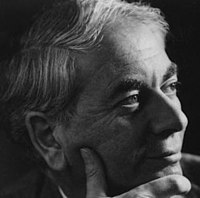Dennis Sciama
| Dennis Sciama | |
|---|---|

Dennis William Siahou Sciama (1926–1999)
|
|
| Born | Dennis William Siahou Sciama 18 November 1926 Manchester, Lancashire, UK |
| Died | 18/19 December 1999 (aged 73) Oxford, UK |
| Residence | United Kingdom and Italy |
| Nationality | British |
| Fields | Physicist |
| Institutions |
University of Oxford University of Cambridge Cornell University Harvard University King's College London University of Texas at Austin Scuola Internazionale Superiore di Studi Avanzati |
| Alma mater | University of Cambridge |
| Doctoral advisor | Paul Dirac |
| Doctoral students |
John D. Barrow James Binney Adrian Melott George Ellis Gary Gibbons Stephen Hawking Martin Rees David Deutsch Paolo Salucci Antony Valentini Brandon Carter Tim Palmer Philip Candelas Angelo Anile Antonio Lanza Malcolm MacCallum Bruce Bassett Stefano Liberati Enzo Franco Branchini Paolo Catelan Paolo Molaro |
| Known for | Astrophysics and cosmology |
| Notable awards |
Faraday Medal (1991) Guthrie Medal and Prize (1991) |
| Spouse | Lidia Dina (1959–1999; his death; 2 children) |
Faraday Medal (1991)
Dennis William Siahou Sciama, FRS (/ʃiˈæmə/; 18 November 1926 – 18/19 December 1999) was a British physicist who, through his own work and that of his students, played a major role in developing British physics after the Second World War. He is considered one of the fathers of modern cosmology.
Sciama was born in Manchester, England, the son of Nelly Ades and Abraham Sciama. He was of Syrian Jewish ancestry—his father born in Manchester and his mother born in Egypt both traced their roots back to Aleppo, Syria.
Sciama earned his PhD in 1953 at Cambridge University under the supervision of Paul Dirac, with a dissertation on Mach's principle and inertia. His work later influenced the formulation of scalar-tensor theories of gravity.
He taught at Cornell, King's College London, Harvard and the University of Texas at Austin, but spent most of his career at Cambridge (1950s and 1960s) and the University of Oxford as a Senior Research Fellow of All Souls College (1970s and early 1980s). In 1983, he moved from Oxford to Trieste, becoming Professor of Astrophysics at the International School of Advanced Studies (SISSA), and a consultant with the International Centre for Theoretical Physics.
...
Wikipedia
